Apple's Mac Pro - Upgrading CPUs, Memory & Running XP
by Anand Lal Shimpi on September 12, 2006 1:51 AM EST- Posted in
- Mac
Application Performance using SYSMark 2004 SE
We'll kick off our look at general application performance with SYSMark 2004 SE and as always, and we'll look at the overall score as well as the scores in each of the two suites - Internet Content Creation and Office productivity.
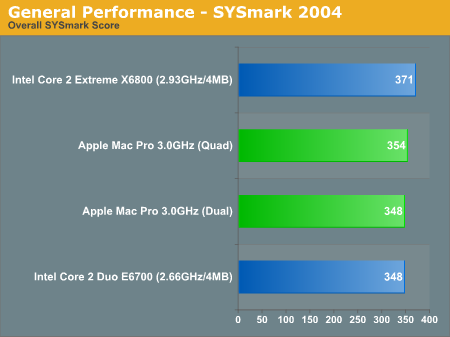
Overall SYSMark performance ends up being pretty close between the 3GHz quad core Mac Pro configuration and our dual core Core 2 Extreme X6800 test bed, with the latter holding on to just under a 5% performance advantage. The overall impact of going from two to four cores is negligable in the overall score as well, making the 3.0GHz Mac Pro about the speed of a Core 2 Extreme X6800 PC.
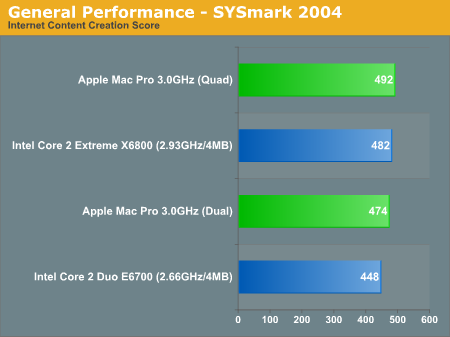
Looking at the ICC score, the quad core Mac Pro and the X6800 are virtually tied with only 2% separating the two. Once again we see no real benefit to having four cores over two on the Mac Pro in these tests and thus performance is about the same as a high end desktop PC.
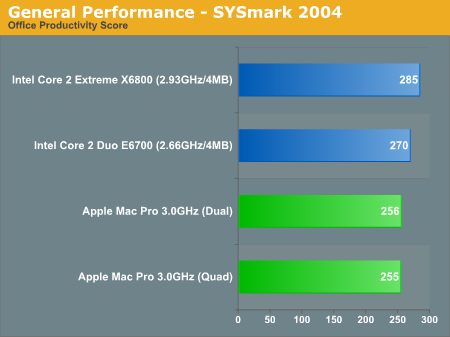
Thanks to its high latency FB-DIMM memory subsystem, the Mac Pro is about 10% slower than our Core 2 Extreme test bed in the Office Productivity tests. It's not a huge reduction in performance but there will definitely be times where there is a noticeable performance drop compared to a similarly equipped Core 2 system.
The breakdown of the SYSMark scores follows below, as you will see there are some benchmarks where the extra two cores really help the Mac Pro out and others where the memory subsystem is at fault for reducing performance. Overall, based on the SYSMark 2004 results, the Mac Pro at 3.0GHz ends up performing like a similarly clocked Core 2 machine, which isn't bad at all.
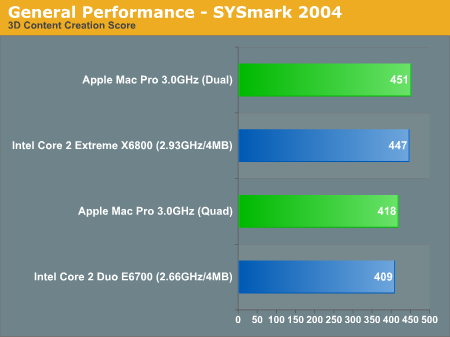
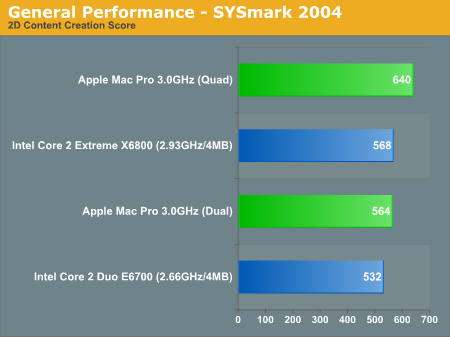
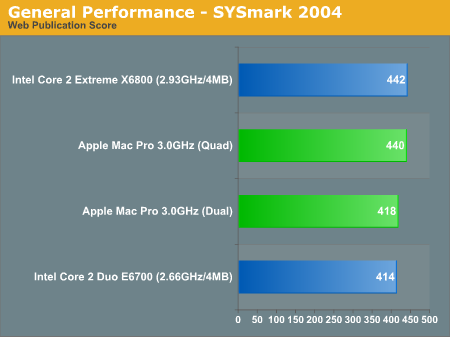
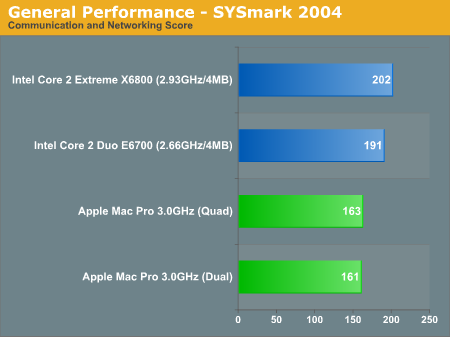

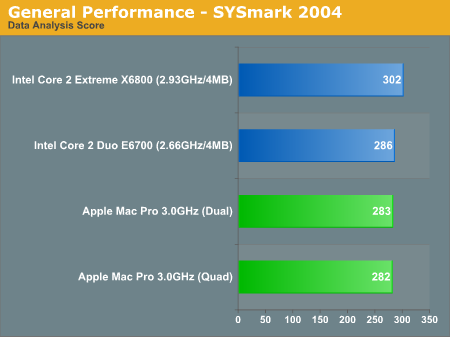










72 Comments
View All Comments
Corlissmedia - Thursday, December 9, 2010 - link
I've been reading through a lot of these sites that discuss upgrading a 2006 Mac Pro with dual dual-core 2.66's to dual quad-core x5355's. I'm thinking of doing this upgrade also, but in researching the cpus, I've found that none of them support ECC memory, and all Mac Pros, as far as I know, have ECC memory. So how does that work?????Spawn4ever - Tuesday, August 4, 2015 - link
I realize this is a very old post but i'm hopping someone, somewhere will still be willing to help me out. I own a great MacPro 2.1 2007 with the following specsModel Name: Mac Pro
Model Identifier: MacPro2,1
Processor Name: Quad-Core Intel Xeon
Processor Speed: 3 GHz
Number of Processors: 2
Total Number of Cores: 8
Memory: 32 GB RAM
ATI Radeon HD 5780
I need to change the motherboard in order to install OS X 10.10 or change the system all together. The processors in this system are still quite fast to just get rid of them. Two questions:
1) Can i find motherboards today that will take these CPUs and work as a Hackintosh
2) Would you say that an Intel i7 series be faster than these almost 8 year old Xeons?
I primarily use this system for video editing and i'm starting to edit 4K footage which cannot be played back in real-time on this configuration.
Hope this post doesn't get lost in digital land and i hear back from someone at Anandtech or the internet world.
Thank you